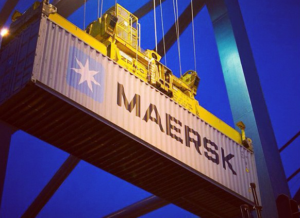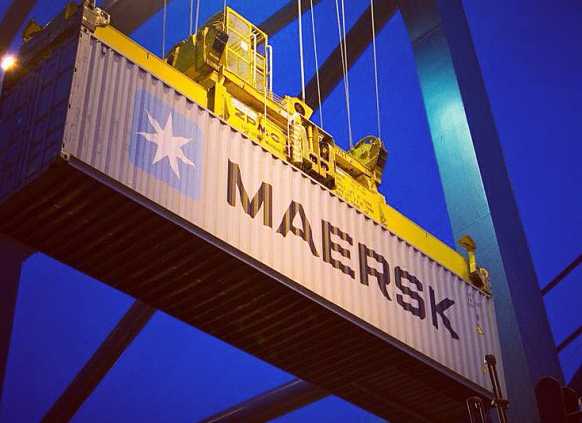 Danish conglomerate A.P. Moller-Maersk is looking to transform its operations into an integrated global transport and logistics group, competing directly with package delivery companies United Parcel Service (UPS) and Federal Express (FedEx).
Danish conglomerate A.P. Moller-Maersk is looking to transform its operations into an integrated global transport and logistics group, competing directly with package delivery companies United Parcel Service (UPS) and Federal Express (FedEx).
Maersk group CEO Soren Skou told investors February 20 that under it major restructuring plan, the company will evolve into “a global integrated container business, a company very similar to UPS and FedEx.”
“I hope they will be considered peers of ours, when we are done with this journey in three to five years,” he added.
As part of the restructuring, Maersk aims to expand its services to all parts of the supply chain, enabling clients to transact with only one company when shipping goods from one end of the world to another.
Earlier this month, Skou expressed satisfaction with the progress the group made last year with its strategic business transformation involving integrating and automating its businesses. This as he acknowledged that Maersk did not hit its earnings target for 2017.
“The past year was unusual for A.P. Moller-Maersk, characterized by a cyber-attack and operational challenges in a few hubs. We succeeded in growing the revenue by 13%, improving cash flow and increasing underlying profits from a low 2016 base. However, the financial result shows that significant improvements are still needed,” Skou had said.
“We have taken the first steps towards the integration of our container shipping, ports and logistics businesses and our digital transformation is taking shape. At the same time, we have found new owners for part of the energy-related business units,” he added.
Maersk has divested itself of most of its energy assets to concentrate on transport and logistics.
In August 2017, French oil company Total purchased Maersk’s North Sea-focused oil and gas business in a US$7.5 billion deal.
On January 16 this year, Maersk and IBM announced they would establish a joint venture that would use blockchain technology as well as other cloud-based technologies to help companies move and track goods digitally across international borders.





